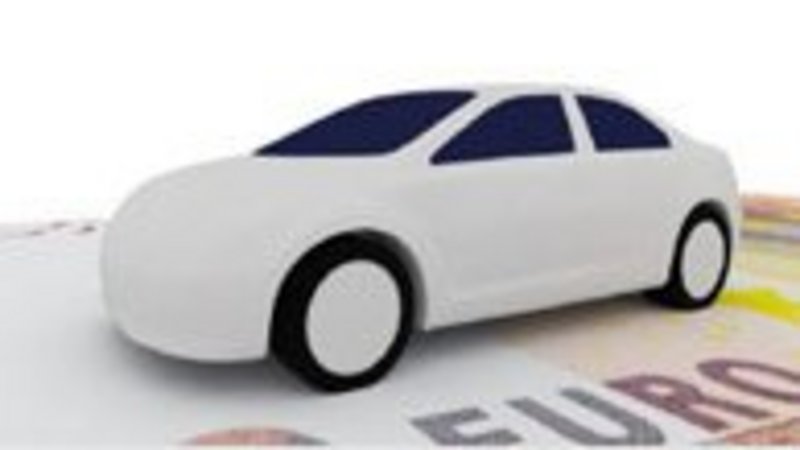Electric Vehicles: High Prices Continue to Significantly Restrict Sales Potential
“Continental Mobility Study 2011”:
- Increasing range allows electric cars to cover most mobility requirements
- Limited willingness to pay extra considerably reduces number of potential buyers worldwide
- China offers greatest potential for selling electric vehicles
Hanover, December 15, 2011. Although most people are now familiar with electric cars, the market potential of such vehicles is – as yet – very low. This was the conclusion reached by the “Continental Mobility Study 2011”, for which the market and social research institute infas surveyed around 1,000 motorists in Germany, the USA, France and China as well as 500 young adults (up to 35 years of age) in ten global megacities.
99% of respondents in Germany had heard of electric cars – but only around 4% would consider buying one with a battery range of 150 kilometers. It is worth noting that only this small group had a suitable user profile – defined as people traveling 70% short distances, a maximum of 150 kilometers per day and no more than four journeys a month covering more than 100 kilometers – and expected prices to be higher than cars with combustion engines. This ratio rises slightly to 6% if the range increases to 300 kilometers. In China, it’s a different story: The current number of potential buyers (14%) would rise to 27%. In France, by contrast, potential buyers increase from 1% to just 2% and in the US from 2% to 4%.
More efficient energy storage systems can cover most mobility requirements
If the usage patterns of motorists were the only factor taken into account, potential demand could be much higher: The electric cars currently or soon to be available on the market (with a range of up to 150 kilometers) would enable 52% of German drivers to cover their daily needs hassle-free, as they primarily drive short distances and do not travel more than 150 kilometers a day. By way of comparison, this figure would be 44% in China, and 42% in the US.
More efficient energy storage systems (max. 300 kilometers) would change this considerably, allowing 97% of German motorists, 91% in China, 87% in the US and more than half of French drivers to meet their mobility needs.
Dr. Elmar Degenhart: “We are very realistic about the market opportunities.”
Drivers in all countries stated that price was the most important prerequisite for buying an electric car: 43% in Germany, 41% in the US, and 49% in both France and China. “In view of car purchasers’ sensitivity to prices and a difference of around €10,000 between the cost of an electric car and the cost of a vehicle with a traditional combustion engine, we regard the short-term market opportunities as somewhat difficult: It will be some time yet before demand reaches a level at which volume effects will lead to noticeable price reductions. And this is why it is important for both suppliers and manufacturers to grasp every opportunity to reduce costs for vehicles with electric drives in a way that does not depend on the volume of cars produced. One key word here is ‘standardization’,” explained Continental Executive Board Chairman, Dr. Elmar Degenhart.
The glaring cost gap explains why the study uncovered such a low number of potential buyers. Despite having appropriate usage patterns, respondents in the countries surveyed who intend to buy an electric car find themselves in the minority. In purely mathematical terms, potential demand for the markets mentioned would already exceed three million electric vehicles, with the majority located in China, followed by the US, Germany and France.
“The results of the study confirm that the transition from cars with traditional drive systems to electric cars cannot and will not happen overnight with regard to the cost difference alone. We must therefore make greater use of the considerable potential for reducing consumption in the combustion engine at the same time. Savings of more than 35% can be achieved in the coming years. At the same time, technology for electrifying drive systems must be developed further. There must be a clear focus here on minimizing costs without compromising on safety, quality or comfort,” said José A. Avila, Continental Executive Board Member and head of the Powertrain Division, which deals with drive technology.
More than one in four people in Germany want to buy a hybrid car …
The “Continental Mobility Study 2011” also examined awareness of and willingness to buy hybrid vehicles, which do not have a restricted operating range. Of the 96% in Germany familiar with this resource-saving drive system, 27% “probably” or “definitely” intend to buy a car of this type. The same goes for 29% in the US, 10% in France and 65% in China. Compared with a study introduced by Continental in 2008, disposition to buy has increased in China above all. The values for Germany and the US have not changed significantly.
… and they even accept the higher costs
When it comes to the price of hybrid cars, it was mainly the Germans (66%) and Chinese (63%) who assumed that the purchase price would be higher. Just how high varies considerably: German and French respondents who anticipated additional costs gauged them at €3,500 to €5,000. Americans assumed that they would cost around €2,000 more, while the Chinese estimated that this technology could be realized for a surcharge of around €500. 33% of respondents in Germany, 48% in the US, 59% in France and 36% in China anticipate that these vehicles would cost the same or less than cars with combustion engines. In Germany, the estimated price of a hybrid vehicle was the same as in 2008. In the US and particularly in France, expectations have changed: Today, the majority of respondents in these countries believe that the price will be the same or lower, after anticipating higher purchase prices back in 2008. Compared with 2008, more people in China expect the cost to be higher. In all countries, skepticism has increased that the higher original costs will depreciate very quickly – within three years.
“The study shows that cost issues played a decisive role for motorists during both survey periods,” says Klaus Sommer, head of Automotive Market Research at Continental. “It will be interesting to see how drivers’ price sensitivity will change and how realistic their estimations will become as electric vehicles become increasingly available on the market, as is currently the case with hybrid vehicles.”



